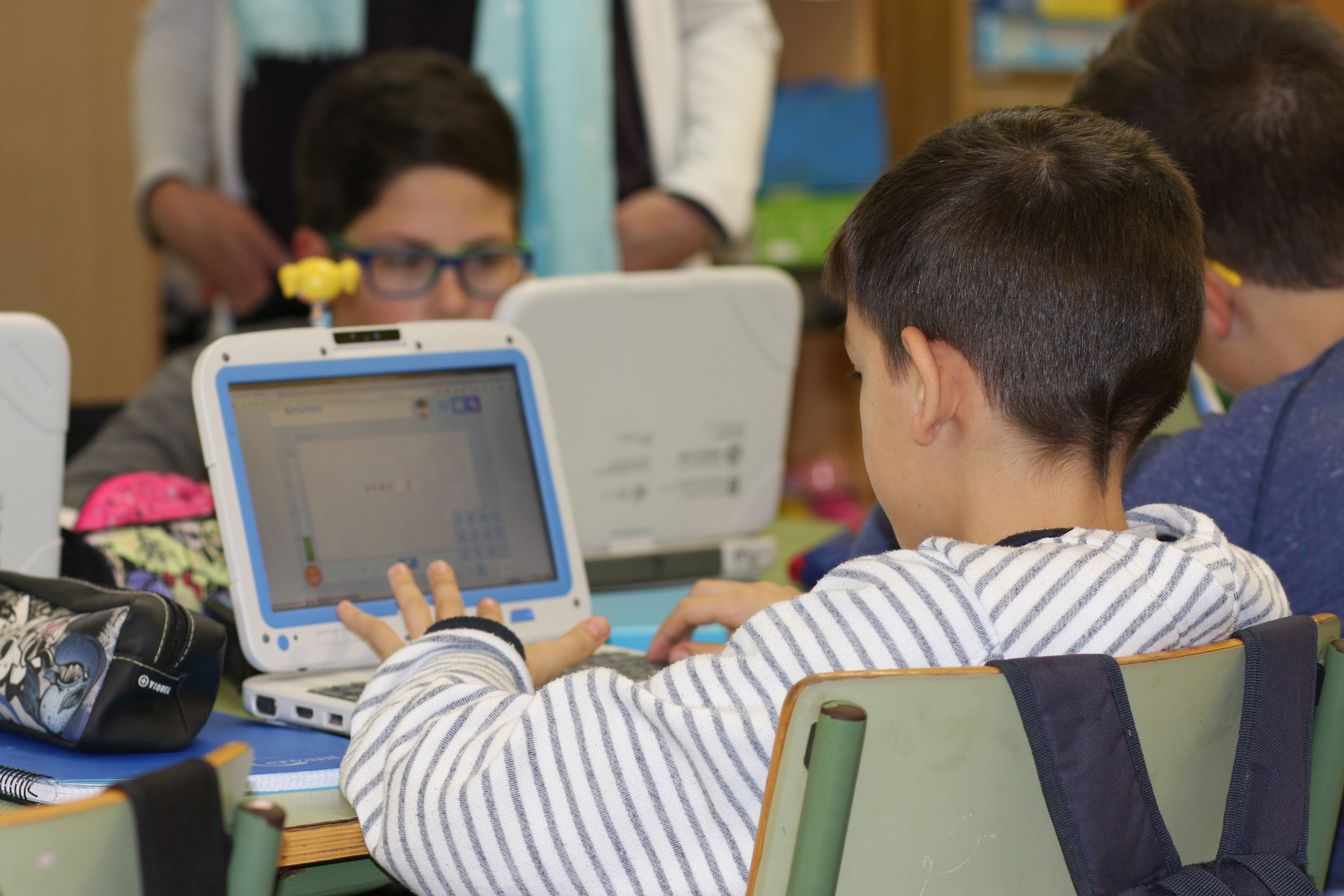At 1:45 p.m. on Monday, Vaneska Ramos, 44 years old, walks quickly out of Cristo Rey school in the Madrid neighborhood of Hortaleza, holding her 6-year-old son David's hand. She has come to pick him up early out of fear of the blackout. "I am from Venezuela and that's why I am cautious. It seemed very strange to me that the power went out, it made me suspicious. My husband told me he was talking to other provinces and that there is no power there either, so I rushed to the school because this doesn't look good. And now that I found out it's all over Europe and with what's been happening in Russia these days, it's scary," the woman says.
She is not the only one who has come to the school to pick up their children hastily. That's what Rafael and his wife are doing, coming for Alejandro, 7 years old. "Just in case, just in case," they tell the Head of Studies, who along with a handful of teachers receives parents at the reception. "Since the situation is dragging on, we are coming for the child, to see what happens. I understand that like us, there are many parents who come because they are worried, because this is happening all over Europe. Hopefully, it's nothing, but as a precaution."
Around 2:00 p.m. at Cristo Rey, there is no light or internet, and the phones have just started working. "I'm calling my children and they're not answering," says the Head of Studies. Although most of the students remaining in the school are having a snack in the cafeteria. Some teachers are still teaching classes.
This is the case of the school principal, who greets us around 2:00 p.m. "There has been a bit of tension and chaos, not from within but from outside. Some scared parents have started calling, but for now, we are calm," says the teacher. "It's the parents who are nervous, calling their children's phones. They are coming to pick them up hysterically."
Among those who have not succumbed to hysteria is a father who is picking up his two children not because of the blackout but because they are planning to go on vacation to the beach for a few days and he does not plan to change their plans. "The difficult part will be getting out of the garage because the doors won't open," he says. "I imagine the power will come back soon, I don't know. We'll see if we don't regret it."
"You can't imagine how hard it was for me to cross Madrid by car. For now, people are taking it calmly, but let's see how long this lasts," says another father who is "just asking." "I'm calm," says the teacher attending to him.
The same confusion and uncertainty are being experienced in the other educational centers consulted by elmundo.es. Some parents have overwhelmed the switchboards, and others have picked up their children early. The lights are not working in most of them.
"In the schools, we are doing fine for now, the teachers are scared, and the children are eating. The situation right now is calm. In the classrooms, the emergency lights are working. The children will resume afternoon classes at 3 p.m. In the kitchen, the food has been served because it was already prepared, the dishes have been washed by hand because the dishwashers are not working. It's the adults who, out of fear, are picking up their sons and daughters one by one," laments Sara Sánchez, director of the public school Ciudad de Nejapa in Tres Cantos. Ildefonso Trigueros, director of the private school San Agustín in Madrid, notes that some parents are picking up their children early.
At Kolbe school in Villanueva de la Cañada, they do not have electricity, but the classrooms are illuminated by natural light coming through the windows. "We have a diesel generator that we have turned on for essential operational matters, such as refrigerators and internet, but we depend on the duration of the fuel tank," says José Luis Rodríguez, a high school teacher.
